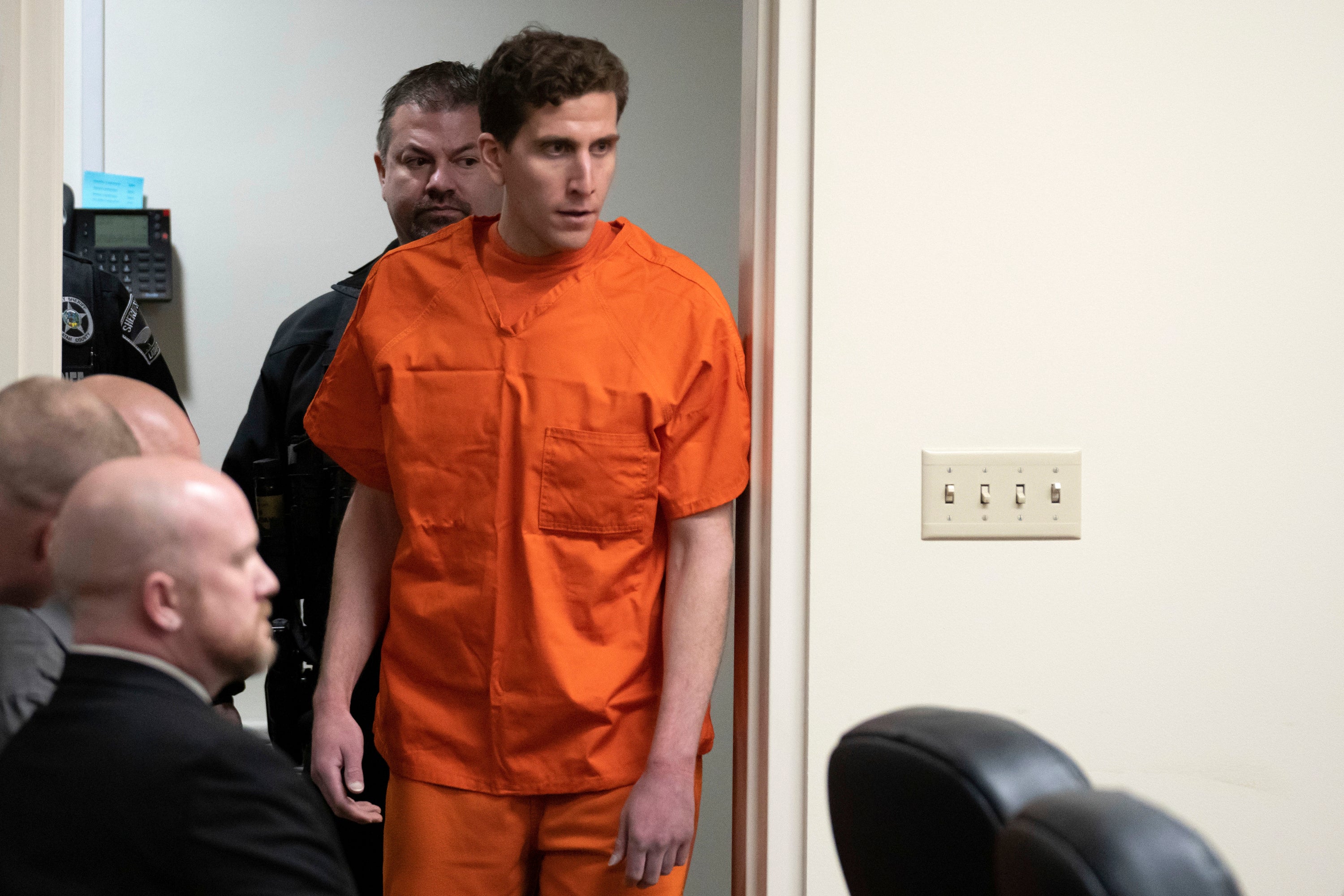Speculation that Bryan Kohberger has ‘co-defendant’ in Idaho murders case debunked
A discovery request filed by the suspect’s legal team included a request for information about a ‘co-defendant’ in the case
A prominent attorney has debunked speculation that suspected killer Bryan Kohberger had an accomplice in the stabbing murders of four University of Idaho students.
Duncan Levin, a former assistant district attorney in the Manhattan DA’s office and attorney at Levin & Associates, spoke to The Independent about the criminal case against the 28-year-old criminology PhD student.
Mr Kohberger is facing the death penalty on charges of murdering Kaylee Goncalves, Madison Mogen, Xana Kernodle and Ethan Chapin in Moscow, Idaho, on 13 November.
Last week, Mr Kohberger’s attorney Ann Taylor filed a discovery request in the case, asking the judge to order the prosecution to hand over all discovery in the case within 14 days.
Among the discovery requests were witness statements, digital media and police reports about the case. It also included a request for information about a “co-defendant”.
“Statements of co-defendant. Any written or recorded statements by a codefendant, and the substance of any relevant oral statement made by a co-defendant whether before or after arrest in response to interrogation by any person known by the codefendant to be a peace officer or agent of the prosecuting attorney, or which are otherwise relevant to the offense charged,” the filing reads.
The request prompted speculation online that there may be evidence suggesting that Mr Kohberger had an accomplice in the killings – or that the defence could be planning to argue that as part of their case.
However, Mr Levin explained that this is just part of the standard requests for discovery in a case.
“These are just very standard requests as part of the defence’s discovery request,” he said.
While ruling out other individuals as possible suspects will likely form part of the state’s case against Mr Kohberger, he said that the move from his defence does not indicate that there are other suspects.
The probable cause affidavit makes no mention of a co-defendant and law enforcement officials have previously insisted that they believe the suspect acted alone.
The request making mention of a co-defendant is also just one of 18 discovery requests made in the court filing.
“I don’t think I would make much hay of that,” Mr Levin said of the discovery request.

Mr Kohberger, who is presumed innocent until proven guilty at trial, remains behind bars in Latah County Jail as he awaits his preliminary hearing on 26 June.
The entire week has been set aside for the hearing – when evidence of the case against Mr Kohberger will be laid out for the first time in court and when he is likely to enter a plea on the charges.
Investigators honed in on the suspect through DNA evidence, cellphone data, his vehicle and an eyewitness account, according to the bombshell probable cause affidavit released earlier this month.
The affidavit revealed for the first time that a knife sheath had been left behind at the crime scene on the bed next to the bodies of Mogen and Goncalves.
DNA found on the sheath was matched to Mr Kohberger, using DNA obtained from trash taken from his parents’ home and a genetic genealogy database, the affidavit states.
Cellphone data suggests that Mr Kohberger stalked the student home at least 12 times in the run-up to the night of the murders, according to the affidavit. The exact dates and times of these instances were not revealed in the affidavit but all bar one were in the late evening or early morning hours.
At the time of the murders, investigators believe Mr Kohberger then turned his cellphone off in order to try to avoid detection.
However, cellphone data places him close to the home on King Road at around 9am on 13 November – suggesting that he returned to the scene of the crime just hours after allegedly murdering the four victims at around 4am.
One of the victims’ surviving roommates was also able to partially describe the killer to investigators after she came face to face with him in the home. Her description matched that of Mr Kohberger, authorities allege.
He was also tracked down through his white Hyundai Elantra, after investigators said a vehicle matching that description was spotted on surveillance footage at the crime scene at the time of the murders and making the journey from the direction of his apartment to the Moscow home and back again.
The motive for the murders is unknown and it remains unclear why Mr Kohberger allegedly targeted the victims, with no known connection between the four students and the suspect. The murder weapon – a fixed-blade knife – is also yet to be found.
At the time of his 30 December arrest, Mr Kohberger had just completed his first semester as a PhD student in criminal justice at Washington State University.
For years, he had shown a keen interest in criminals and the criminal mind, studying criminology at DeSales University in his home state of Pennsylvania – first as an undergraduate and then finishing his graduate studies in June 2022 – before moving to the Washington-Idaho border town of Pullman to begin his PhD program.
While at DeSales, he studied under renowned forensic psychologist and leading expert on the BTK killer Katherine Ramsland and also carried out a research project seeking “to understand how emotions and psychological traits influence decision-making when committing a crime”.




